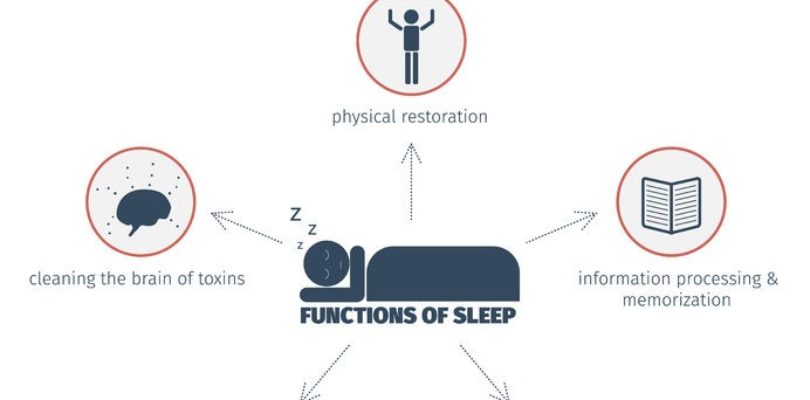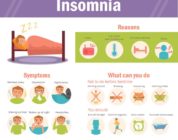Importance of Sleep – Reasons Why You Should Catch More Hours of Sleep
Sleep is essential to human survival, health, and productivity. It is as important as breathing, eating and drinking, hence the reason why we spend a third of our lives sleeping. Unfortunately, we discount the overarching importance of sleep we no longer sleep. Here is something we need to learn as busy beings: Your body needs sleep even when you don’t think you do. Sleep, just like a debt owed, has to be paid back!
Here are some of the reasons why you should get enough sleep every night, and be wary when you can’t get enough sleep – fine lines aren’t your only enemy!
Poor Sleeping Habits Will Increase Your Waistline
There is a strong link between lack of sleep and weight gain. According to most studies, children and adults who get few hours of sleep every night tend to become obese. This happens because sleep debt affects your fat cells in the same way it affects your brain and your mood.
Don’t you hate how you wake up feeling grumpy, tired, dazed and exhausted whenever you don’t get enough sleep? Well, that happens to fat cells too. Insufficient sleep leads to metabolic grogginess. This is a term coined by researchers at the University of Chicago who noted that after four days of poor sleep, your body starts storing fat because of sleep debt.
Unfortunately, while coffee works perfectly in waking up your brain, it doesn’t have the same effects on hormones (insulin) that control fat cells. While your brain wakes up, there is a disruption in insulin levels, and there is a significant drop in insulin sensitivity.
But how does insulin resistance increase your risk of becoming obese? Well, insulin is the master storage hormone. The fat cells which are in circulation in your body stimulate the production of more insulin. High unregulated insulin levels open cracks for fat storage in all the wrong places.
If You Were a Good Sleeper, You’d Crave Fewer Calories
Have you noticed that you tend to eat more or want to eat more when on sleep debt? This is because sleep disruption leads to fluctuations in appetite hormones – leptin and ghrelin. Contrary to what most of us believe, sleep isn’t under the control of your willpower but, under the control of these two hormones.
Leptin production takes place in the fat cells. When you have low leptin hormone released from fat cells, your stomach feels empty. Ghrelin’s production takes place in the stomach and the pancreas. High ghrelin production stimulates hunger. It also slows down metabolism reducing the calories burned but increasing the number of fat cells.
Therefore, to lose weight, leptin, and ghrelin have to be balanced. How does sleep come in? Less than six hours of sleep triggers an area of the brain that increases your hunger pangs by reducing the release of leptin and increasing the production of ghrelin. You crave more food and get fatter.
Unfortunately, the wars between sleep, hormones, and hunger don’t end there! Insufficient sleep makes weight loss impossible by stimulating the production of cortisol, the stress hormone. Cortisol makes your attempts at weight loss impossible by activating the brain’s reward center – that makes you crave more food. So, a combination of high ghrelin and cortisol levels leaves you hungry all the time – these hormones shut down the part of the brain that signals satiety.
This is all bad because you won’t crave healthy food and your ability to make a wise decision on what to eat is impaired. Lack of sleep impairs the function of the frontal cortex, the lobe that controls decision-making. So, convincing yourself or a friend to eat a salad instead of cake is a battle you’ll lose! Oh, that’s not all, lack of sleep convinces you to eat the greatest piece of cake available!
So, if you are wondering about the importance of sleep or reasons why you should sleep, think about your body shape and size!
Enough Sleep Improves Your Memory
Who said your brain sleeps when you sleep? It doesn’t! When sleeping, the brain is at work strengthening your memories. It somewhat practices the skills you learned when you were awake, through a process called consolidation. So, to master that work thing or to pass your exams, sleep more. Whether you are trying to learn something mental or physical, your skills get better with sleep.
Sleep Curbs Inflammation
Above, we mentioned that sleep debt causes insulin resistance, which almost always causes Type II diabetes. Diabetes, just like heart disease, arthritis, stroke and premature aging have their roots in inflammation.
Where does the relationship between sleep and inflammation come from?
Research shows that people who sleep less than six hours every night tend to have high blood levels of inflammatory proteins compared to folks who sleep more hours. This means that lack of sleep predisposes you to a high risk of getting heart attacks.
Good Sleep Spurs Productivity and Creativity
As it turns out, your creative juices will flow throughout the day if you get enough sleep. Besides memory consolidation, sleep restructures and reorganizes memory during sleep enhancing your creativity.
It improves your performance, productivity and your ability to make good decisions. As mentioned above, lack of sleep affects your logical thinking center, the frontal cortex and this means that when you get enough sleep, you can make sensible decisions for your firm and for yourself too.
You make more mistakes, and you are unable to complete tasks when you aren’t well rested. That points to just how important sleep is!
Lack of Sleep Makes Exercising Ineffective
The ripple effects of insufficient sleep spread beyond your dieting attempts and the clarity of your thoughts by spilling over to your workout plans.
How? Sleep and muscle lie on different pages. You see, you need muscle to lose fats making muscle and enemy to fats. Normally, sleep increases the synthesis of proteins and when you don’t catch enough Zzzz’s you suffer muscle mass and your ability to burn fats! Your body gets weak, and you get injured too often!
And, that isn’t all – the blood concentrations of the growth hormone are high when you get proper sleep, and vice versa. The human growth hormone is a natural fat burner, and it is also an anti-aging hormone. So, poor sleep equals slow wave sleep with little release of the growth hormone.
It also increases cortisol levels, which, as mentioned above leads to weight gain and, in this case, reduces the release of growth hormone since you experience slow wave sleep.
There are Strong Links Between Sleep and Depression
For your mental well-being, you have to catch enough hours of sleep. If one day of poor sleep leaves you cranky, moody, flat, sad, and confused, what happens when you can’t sleep well every night? It doesn’t come by surprise then, seeing just how not getting enough sleep or facing problems falling asleep come with mental issues like anxiety and depression!
Insomnia is one of the symptoms of depression and the inability to fall asleep increase chances of people feeling sad, helpless, worthless and hopeless. Keep in mind that 60-80 percent of patients suffering from depression encounter sleeping problems.
It doesn’t end there; studies point out that poor sleeping patterns and depression increase risk of suicidal deaths.
Sleep Boosts Immune Function
When resting, the cells are rejuvenating, regenerating and getting repaired from effects of stressors faced in the day. Since millions of cells die daily, more need to be regenerated. Sleep makes the regeneration possible and leads to the development of more immune cells. Therefore, insufficient sleep impairs your immune function. No wonder you get colds when you don’t get enough sleep.
Sleep Leaves You in a Better Mood
All the emotions get out when you get insufficient sleep – you have a mood from hell. But, things always feel better when you get enough sleep. So, instead of being impatient, irritable and unable to concentrate throughout the day, just turn in early today, you’ll feel the difference, both in your mood and in your energy levels.
With a positive attitude and a bright mood, it is easy to take on challenges faced during the day.
Poor Sleep Patterns Speed up Aging
If you look older than you are, then you may want to blame your inability to fall asleep. Sleep is a natural anti-aging agent, and it is the reason why you glow when you get enough hours of sleep.
Sleep cycles – Through the five stages of sleep, your body can reverse aging. The body utilizes that time to heal from all the rigors of the day. REM sleep cycle rejuvenates and restores you. Before you get to the REM stage, you feel drowsy, sleep lightly, you enter the deep sleep stage and finally REM stage. REM is the dream stage characterized by rapid eye movements, twitching muscles, fast breathing and tensing of muscles. During this time, cells rejuvenate. If you sleep well, you can experience this stage up to five times, and you won’t have to deal with fine lines.
Lack of sleep stresses out your skin because of high cortisol levels. The effect of stress is skin breakouts. Cortisol also breaks down collagen on the skin as well as elastin resulting in premature aging seen as fine lines and wrinkles.
Besides cortisol, you have low growth hormone levels when you don’t sleep well. You need the growth hormone for cell production. The absence or the presence of the growth hormone in limited quantities thins out the skin as you are unable to produce new cells or repair the damaged cells. Collagen becomes stiff in the process, and you get wrinkles.
There is also the case of a weak immunity which harbors your cells’ ability to neutralize free-radicals that damage collagen and elastin.
Finally, lack of sleep results in inflammation of the skin barrier.
It isn’t called beauty sleep in vain.
Final thoughts
Sleep is your ticket to good health; you need it to survive and to look beautiful! Good sleep drives optimum homeostatic processes and keeps the body’s internal clock in check keeping you healthy.
[googlee221b289cf664155.html]




